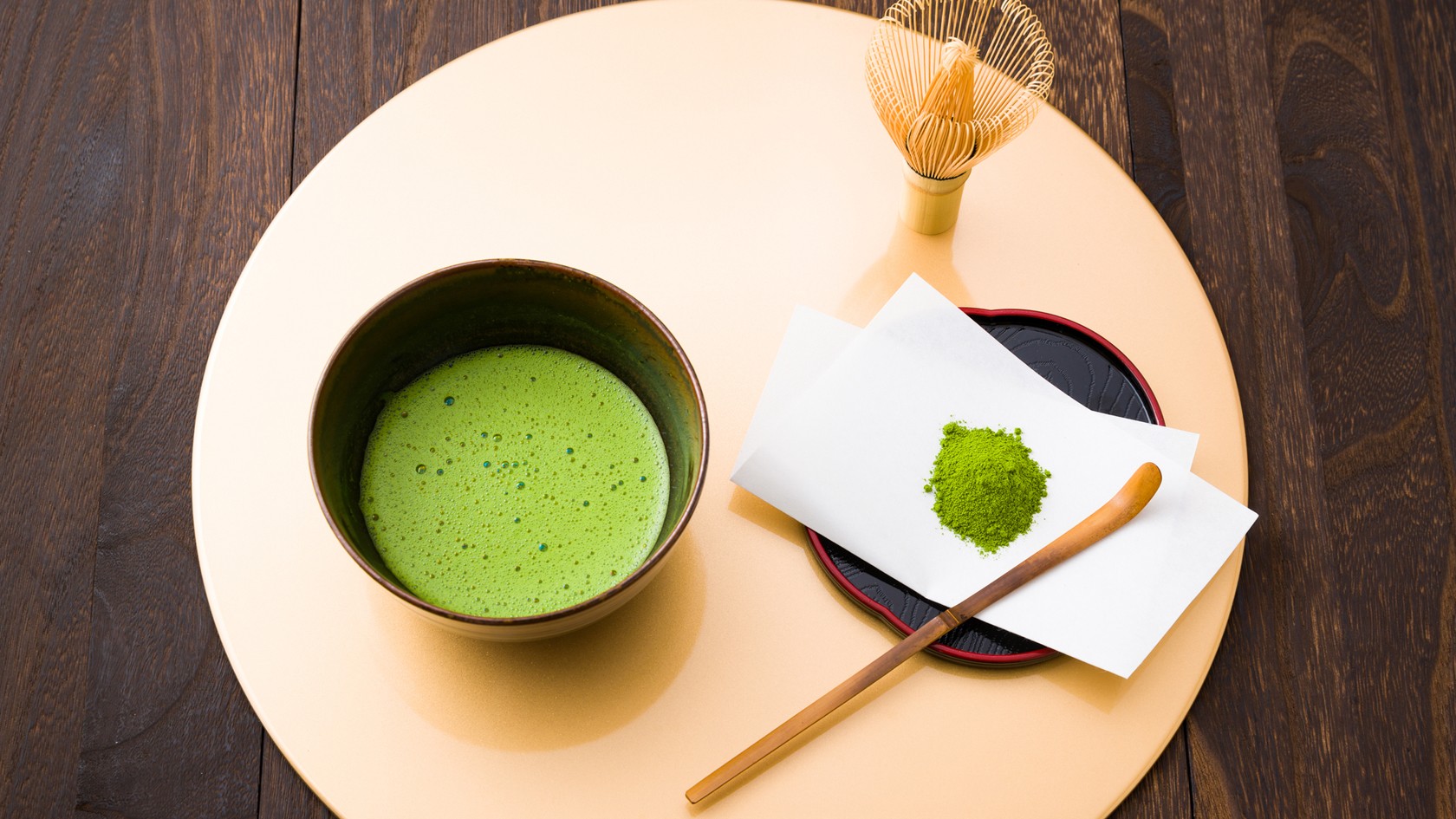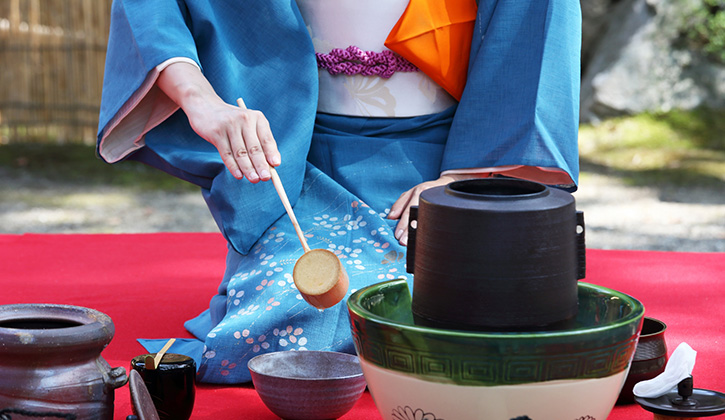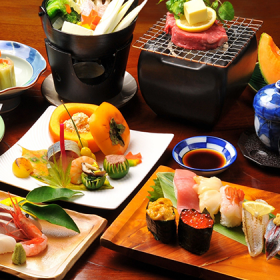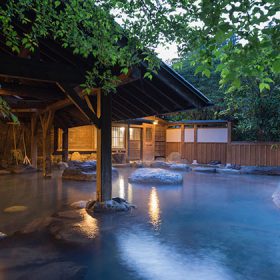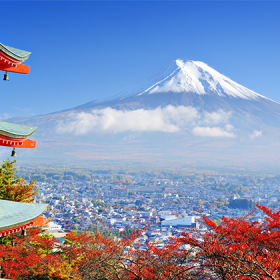The tea ceremony SADO is a ritual service conducted in accordance with traditional style, rules and disciplines. It is not just drinking and enjoying tea. It is a ceremony developed in many years through combination of various cultures and traditions across Japan. SADO or Tea Ceremony is held in an atmosphere specifically created for this event. Generally, it is held in specially built house for tea ceremonies located in gardens with beautiful flowers, trees and plants. Beautifully ornamented craft works are used to serve tea. Special Japanese food and sweets are served for this special occasion together with tea.
Moreover a special custom has been instituted from long ago to demonstrate thorough respect and honor to the guests and to please them during the tea ceremony. Tea ceremony represents Japanese spiritual heritage called WABI-SABI, which originates from “ZEN” school of Buddhism. WABI-SABI means ordinary, simple and silent, and it is practiced to demonstrate the act of treating the guests seriously with great honor.
The spirit of WABI-SABI is greatly cherished in traditional SADO or Tea Ceremony, which is held in SASHITSU or Tea House in an atmosphere of tranquility with full attention focused on serving tea, calming down our spirits and through this to reconsider ourselves and to heal our spirits.
In SADO there is another concept called ICHI GO ICHI E, which considers a chance of meeting with someone as only once in life and therefore necessitates to treat the person with highest respect and great honor. Thus, Japanese people appreciate serving tea with this spirit in mind.
